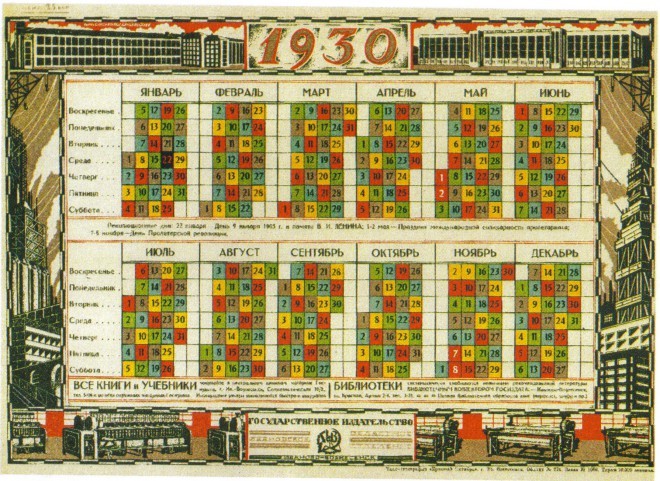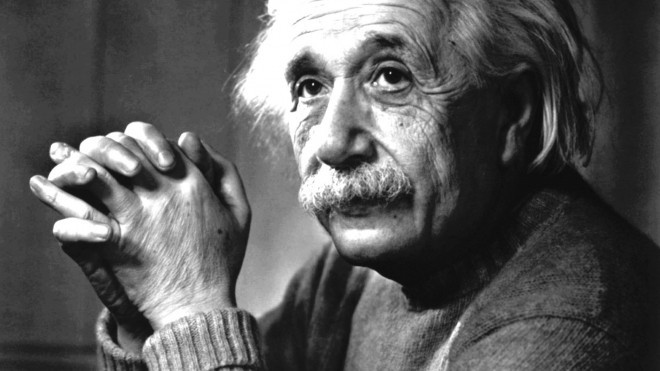Time governs every aspect of our lives. It is a constant with which we operate in society, and it determines when we will eat, sleep and when we will work. Time and space are thus the central pillars of the entire universe and serve as the authority for all existing matter within them. Most of us don't even think about time, even though we should. We rarely think about how it is structured and how it came to be. Here are some amazing facts that are little known outside the scientific sphere. Read them if you have time.
The Russians wanted to establish a five-day week.
In an effort to speed up production, facilitate economic growth, and reduce the influence of religion, the Soviet Union attempted to institute a five-day week in the early 20th century under Stalin's regime. From 1929 to 1931, Stalin thus introduced a special structure with which workers were supposed to stick to schedules and thus ensure regular, uninterrupted production at all times. Needless to say, this of course didn't work.

We recently had a leap second.
A leap second is a second added to Coordinated Universal Time (UTC) to match the time based on the rotation of the Earth on its axis. The reason for the IERS (International Earth Rotation and Reference Systems Service) measure is that the Earth's rotation is slowing down (1.5 to two milliseconds per day), and if leap seconds were ignored, the Sun would reach its zenith later and later in local time. time. The second was last pushed on June 30, 2015.
We are relatively new to the space.
The planet we live on and the solar system we are within has been here much longer than we have been - that much we know. But how new are we in the grand scheme of the universe? A lot! The 200,000 years that humanity has walked the Earth is just a drop in the ocean compared to the 13.8 billion years that the universe has existed.
Cultural background can influence our perception of time.
Time zones allow us all to be under the same construct of time, in which a day is divided into 24 hours, and each hour consists of 60 minutes. However, the perception of the structure of time can differ significantly. Scientific research has shown that most Americans conceptualize time as being divided into five-minute intervals, while in the Middle East time is divided into 15-minute intervals.

Time has not always existed.
It would stand to reason that time has existed since the beginning of the universe and that it helped shape and organize it. While this may seem reasonable, it is simply not true. According to the theory of relativity, time and space only came into being with the big bang about 13.8 billion years ago. Before that, these two seemingly universal constants did not exist, and matter was just a small ball.
READ MORE: 10 things you probably didn't know about the North Pole
Time slows down.
At the time when dinosaurs inhabited the Earth, the year had 370 days. The gradual decline of the number of days to what we have today, i.e. 365 days, fulfills the wishes of those who wish that time would run more slowly. The rotation of the Earth is slowing down, which results from the slight resistance of the gravitational force on the Moon. The result is 1.7 milliseconds shorter days.
There is no 'now'.
A popular saying, and for some even a life mantra, says that one should 'live for now'. This means that we must take advantage of the life we live in the present. What if 'now' doesn't exist? From the point of view of physics, space and time are always fluid, and they are affected by gravity and their own speed. Therefore, any sensory information we absorb is out of date by the time we perceive it. For example: our visual perspective of the Moon on a clear night is actually a reflection of how it looked 1.25 seconds earlier—the time it takes for the Moon's light to reach Earth.

Oddball paradigm
Our mind is a complex thing that can be manipulated even by time. Some periods of time seem longer, some shorter, even though they occupy the same amount of physical time. What otherwise seems like a happy coincidence has legitimate science behind it. T. i. oddball paradigm assumes that time in our heads actually lengthens when we are in the enjoyment phase and shortens when we are monotonous and stressed.
Height is important.
The higher we are, the faster time passes. The researchers used very precise anatomical clocks to prove that changes in the perception of time are caused by just how high our feet are. What does that mean? While standing, time passes faster for our face than for our feet.
The day is shorter than we think.
At school we were taught that a day is 24 hours long - that's the time it takes for the Earth to spin on its axis. Based on this, we defined our culture with a 24-hour cycle, 24-hour fast food restaurants and even the phrase '24/7'. But that's not entirely accurate. The time it takes the Earth to rotate on its axis is actually 23 hours, 56 minutes and 4.2 seconds.







